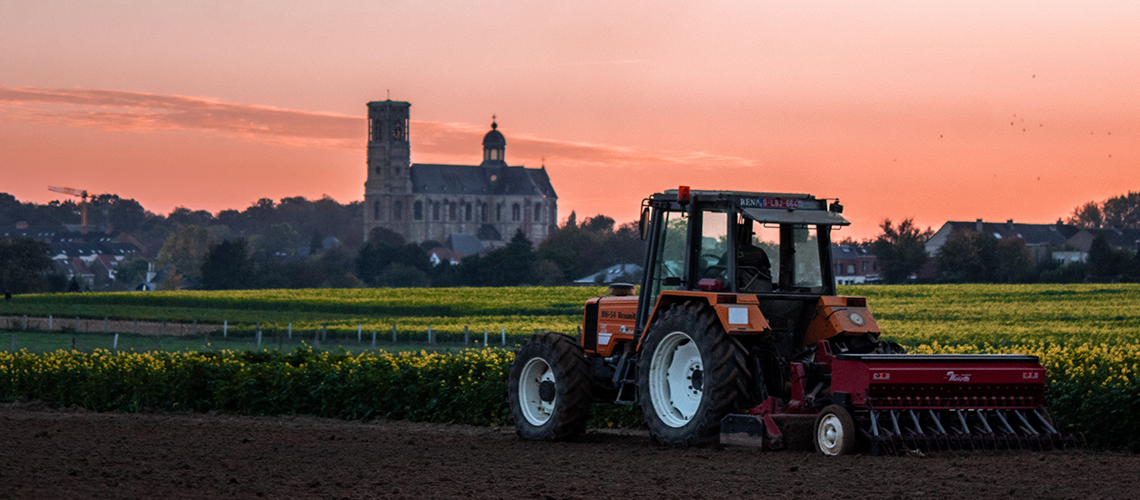In this world filled with technology and instant gratification, there’s something timeless and captivating about the family farm. Tucked away in the beautiful landscapes of Tennessee these farms provide the perfect setting to teach children important values. Amidst the fields of crops and gentle animals lie valuable life lessons that shape the minds and hearts of the next generation.

From connecting with the origins of food to cultivating compassion, responsibility, and a strong work ethic, the family farm offers a unique environment for children to learn and grow. Let’s explore the enchanting world of family farming and uncover the invaluable experiences it imparts to young hearts and souls.
How Family Farm Impacts Children?
Connecting with the Origins of Food
In today’s fast-paced world, it’s easy for children to lose sight of where their food truly comes from. Farming helps bridge that gap by teaching kids that the fruits and vegetables they enjoy result from hard work, care, and dedication. When children have the opportunity to witness the process of cultivation and harvest firsthand, they develop a deeper appreciation for the labour and resources required to bring food to their table.
Children connect with the origins of their food by seeing the seeds being planted, witnessing the growth of plants, and participating in the harvest. They learn that food doesn’t magically appear on supermarket shelves but is the result of farmers’ efforts and the earth’s natural processes. This experience fosters a sense of gratitude and respect for the immense effort into food production.
Instilling Compassion and Responsibility
Caring for farm animals is a fundamental aspect of farm life. On a farm, children have the opportunity to learn about responsibility and compassion towards animals. They come to understand that their actions directly impact the lives of these creatures. Children develop empathy and compassion by participating in feeding, nurturing, and ensuring the animals’ welfare.
Through their interactions with farm animals, children learn to prioritize the well-being of others and recognize the importance of caring for living beings. They understand that animals depend on them for their basic needs, and this fosters a sense of responsibility. These experiences teach children empathy, kindness, and the value of caring for others.
Embracing the Circle of Life
Children on a farm get to see and experience the realities of life and death. They witness the natural cycle of animal birth, growth, and eventual passing. This firsthand experience allows children to develop a profound understanding of the circle of life. They learn that life is fragile and finite and cultivate gratitude for the animals that sustain us.
By witnessing the interconnectedness of all living beings, children gain a deep respect for the delicate balance of nature. They understand that all living creatures play a role in the ecosystem, and this awareness promotes a sense of responsibility towards the environment.
Cultivating a Strong Work Ethic
Farming is a demanding and labour-intensive activity that requires dedication and perseverance. Children actively participate in various tasks required to maintain farm operations on a farm. From sunrise to sunset, they experience the hard work involved in planting, weeding, harvesting, and tending to animals.
Through these experiences, children develop a strong work ethic. They learn the value of diligence, perseverance, and commitment. They understand that success is not achieved overnight but through sustained effort and dedication. These lessons on the farm translate into valuable life skills that will prove beneficial in any future endeavour they undertake.
Patience and Delayed Gratification
Farming teaches children the value of patience and delayed gratification. They understand that nature has its own timeline, and crops and animals require time to grow and develop. Children learn to wait for the right time to harvest their crops, to nurture them through different stages, and to trust in the natural processes of growth.
This experience teaches children the virtue of patience and the understanding that good things come to those who wait. They learn to appreciate the rewards of investing time, effort, and patience. The lessons of patience and delayed gratification learned on the farm can be applied to various aspects of life, helping children to navigate challenges and achieve long-term goals.
Appreciating the Value of Money
Running a family farm involves financial management and resource allocation. Children brought up on a farm learn firsthand about the costs and profits associated with farming. They gain a practical understanding of money management by witnessing the investments made in equipment, seeds, and livestock and the returns earned from selling crops and products.
By being involved in financial decisions and understanding the economic aspects of farming, children develop essential skills for future financial independence. They gain a deep appreciation for the value of money, develop the ability to make well-informed decisions and understand the importance of budgeting and resource allocation.
Final Word
The family farm in Tennessee symbolizes tradition, hard work, and the nurturing of essential values. Here children connect with the origins of their food and develop empathy, responsibility, and a strong work ethic. From witnessing the circle of life to cultivating patience and understanding the value of money, the lessons learned on a family farm lay a solid foundation for a fulfilling and purposeful life.
As parents and guardians, let us embrace the opportunity to expose our children to the wonders of the farm, fostering a deep appreciation for nature, instilling values that will guide them throughout their lives, and sowing the seeds of a brighter future. Together, let us ensure that the legacy of the family farm continues to shape generations to come.

